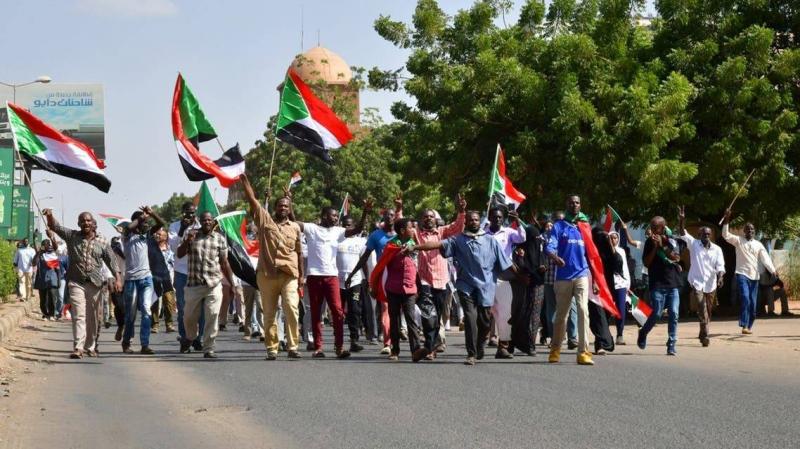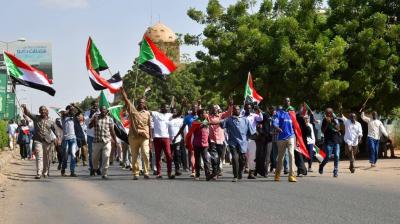Under the title "Civil Disobedience in Sudan and 'New Restrictions' on Hamdok," the Arabic website Al Arabiya reported that as solutions to the crisis remain stagnant, with declining optimism for a near resolution between the military and civilian components in Sudan, the Sudanese Professionals Association, which led the protests that ousted former president Omar al-Bashir, renewed its call on Sunday to resume comprehensive civil disobedience. Concurrently, several local coordination committees affiliated with the association announced the beginning of erecting barricades and cutting off roads.
The association announced a new document the previous evening, demanding the formation of a "purely civilian transitional authority... lasting for four years." It also called for "restructuring the armed forces" and dissolving the powerful paramilitary Rapid Support Forces, whose leader, Mohamed Hamdan Dagalo, known as "Hemedti," was deputy chairman of the Sovereign Council before its dissolution on October 25.
These movements follow reports from the capital, Khartoum, indicating that negotiations to find a solution to the political crisis have reached a "nearly deadlock," after the army refused to return to the status quo prior to the exceptional measures announced last month (October 2021). Two sources in Abdullah Hamdok's government informed Reuters that the army has imposed new restrictions on Hamdok after dissolving his government and placing him under house arrest. They clarified that these restrictions further limited his ability to hold meetings or engage in political communications.
It is noteworthy that on October 25, Sudanese army chief Abdel Fattah al-Burhan announced the dissolution of the government and the Sovereign Council, imposing a state of emergency. This came after a campaign of arrests that included ministers, officials, leaders of the Forces of Freedom and Change, and several parties, including Hamdok himself, before he was released the following day. Burhan stated that the prime minister was in his custody due to reports of security threats surrounding him.
However, these military steps triggered a series of international and regional mediation efforts aimed at reestablishing the partnership between the military and civilian components that have held power in the country since 2019, following al-Bashir's ouster. It seems that these mediation efforts, in which the United Nations is participating in seeking a way to bring Hamdok back as Prime Minister in an entirely technocratic government, have faltered over the past couple of days, after a week filled with optimism.




